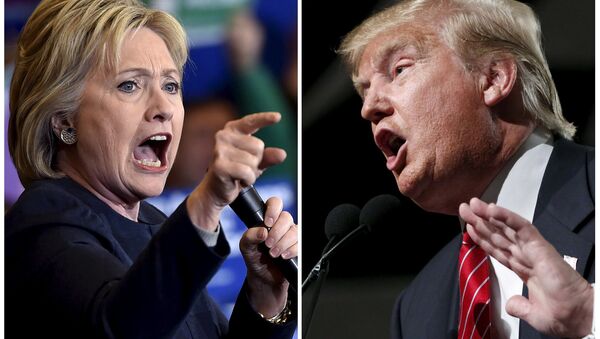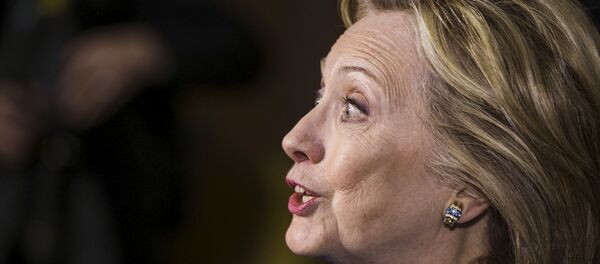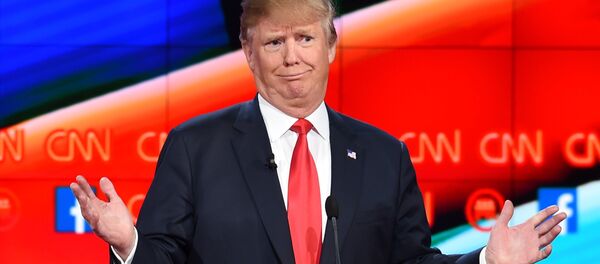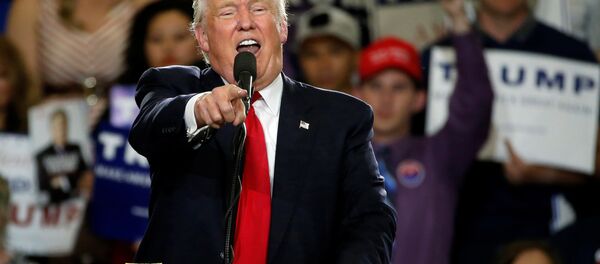MOSCOW (Sputnik), Daria Chernyshova — Traditional division of the US political spectrum into the Republicans and Democrats, their habitual succession in presidency, is now far from certain, with the polls showing two terms of a Democratic president may be followed by yet another Democratic presidency.
“The phenomenon is the fracturing of the US political parties system which has been remarkably durable for over a century. And we see this with both parties – they are really beginning to split,” Jeffrey Sommers, an associate professor of political economy at the University of Wisconsin-Milwaukee, and visiting faculty at the Stockholm School of Economics in Riga, told Sputnik.
“The Republican Party is splintering between the traditional small government conservatives and the Tea Party, which is more nationalist and right-wing. And the Democratic Party has a divide between the far left progressive wing now led by Bernie Sanders and the more moderate faction represented by Hillary Clinton. What we are seeing is a two-party system trying to deal with what amounts to more than two parties,” Wheelan said.
Fractured for a Reason
“The two political parties are growing old and out of touch with what a lot of voters want. For example, the Republican Party is in denial with regard to climate change. The Democrats have refused to tackle America's long term fiscal challenges,” Wheelan said.
Jeffrey Sommers sees the reasons in the economic crisis that started in the 1970s, and was never tackled properly.
He explained that when in the crisis started 40 years ago, the solution to it was financialization of the US economy, moving away from its previous strength in manufacturing, and toward new advantages in finance.
“How this played politically and why this has all come to a head now with this very presidential election and this fracturing of the political system – you now have a significant majority in the United States that no longer believes in the politicians, they are frustrated with our politicians, they are frustrated with our living standards that have been declining, that is not only the wages that have been going down, but there is not enough hours in the day to keep working to overcome the lower pay and the expectation of trying to maintain a certain living standard,” Sommers said.
What to Expect From 2016 Vote
Given the fact that the US presidential election is taking place amid deep divisions in the views of the electorate, it is likely to bring major political changes, experts stressed.
“The central point is that we are seeing the unraveling of American duopoly; the two parties are very unstable at the moment. And the American people are finally entirely frustrated with both of them and this is why Donald Trump could win,” Sommers noted.
“The fact that you have Sanders, a self-described socialist, and the most popular candidate, is nothing short of a major political turn in terms of thinking of Americans,” he said, reminding that socialism was never popular in the United States as it was associated with the Soviet Union.
Wheelan said he would be surprised if the 2016 election does not lead to some major political realignment, including the possibility of a third party emergence that could try to capture the political center.
“It's also worth noting that the number of Americans who describe themselves as ‘independent’ is climbing sharply. The independents may be able to organize themselves into a meaningful political force,” Wheelan said.
However, he pointed out that political change is more likely to happen beyond the White House, particularly if some dynamic House or Senate candidates choose not to run as Republican or Democrat.
“Once a serious politician is elected outside the two major parties, I think the 'duopoly' could begin to crumble,” Wheelan concluded.
The 2016 US presidential election will take place in November. Hillary Clinton is the front-runner of the Democratic Party, closely followed by Vermont Senator Sanders. Business tycoon Donald Trump became the effective Republican party presidential candidate by winning in a landslide victory the primary election in the US state of Indiana on May 3.






